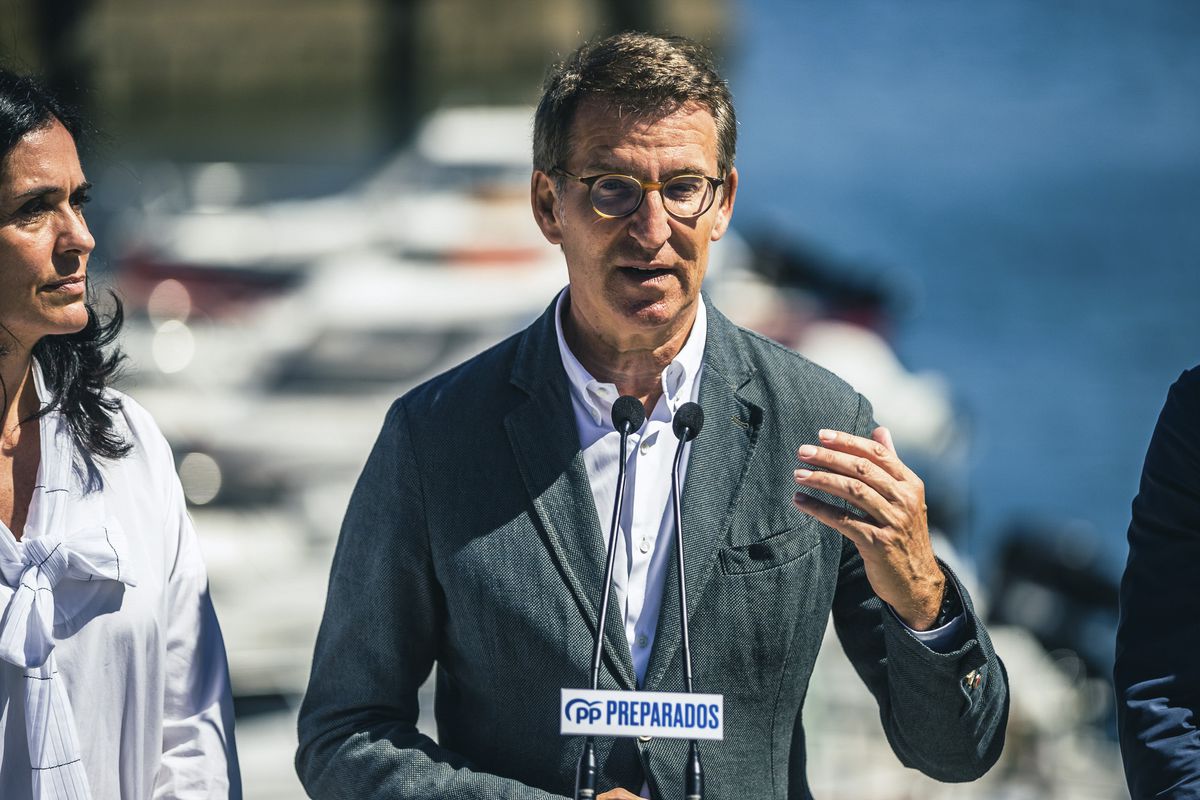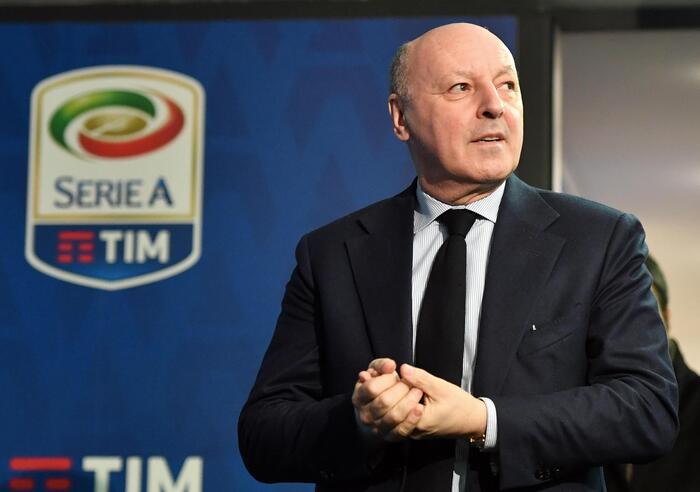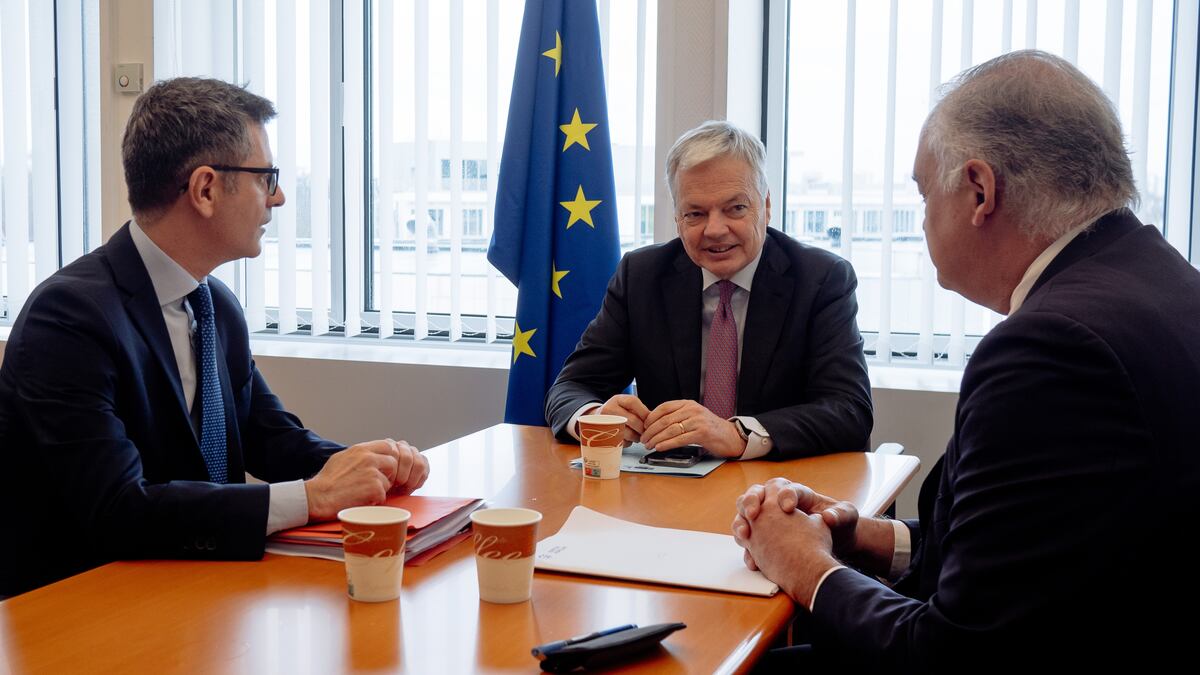The Constitution mandates the two major parties to jointly agree on the names of the 20 members that make up the General Council of the Judiciary every five years.
The constitutional text says nothing about the parties being able to condition this pact on other matters, which is essential for the functioning of justice in Spain.
However, in the three years and eight months that the CGPJ has expired, the PP has several times put forward obstacles related to the pure political contest, while others have raised demands added to the mere renewal of the members.
The last chapter of the persistent blockade is the changing versions of the popular ones to try to disassociate themselves from the agreement revealed by EL PAÍS that the Government and Pablo Casado's PP had reached in autumn 2021 to reform the law of the Judicial Power.
In the long period of disagreements, the government has also made three unilateral moves —one of them gave up— to reform the law, which hindered the negotiations, arguing that it could no longer accept the delay in the agreement.
This is the history of obstacles that has given rise to the greatest institutional anomaly in the country.
1. Cosidó's message breaks the first agreement.
The PSOE and the PP agreed in 2018 to renew the Council with a progressive majority of members and chaired by Manuel Marchena, a conservative-leaning judge.
In that pact, the PP did not demand a reform of the method of choosing the members so that the judges could exclusively choose the judges, and accepted that Judge José Ricardo de Prada, magistrate of the sentence of
the Gürtel case, enter as member.
demands that I would make later.
The agreement was blown up because a message was leaked that Ignacio Cosidó, then spokesman for the PP in the Senate, sent to the popular senators, justifying the agreement because that way the party would be able to “control the second chamber of the Supreme Court through the door of behind".
Marchena resigned and everything went to waste.
This is how the lockdown began.
2. There is no agreement because Podemos criticizes Juan Carlos I.
In the summer of 2020, as revealed by Pablo Casado, the Government and the PP reached a new agreement to renew the council.
On those dates, King Juan Carlos I left Spain due to the scandal of his tax irregularities.
The PP then refused to agree with the PSOE for the attacks on the King by Pablo Iglesias, leader of Podemos at that time.
3. Unilateral movement of the Government to change the law.
In October 2020, the Executive registered a proposal to reform the law to be able to renew the Council with a simple majority of Congress.
He ended up giving up in the face of the criticism that the initiative received.
4. We can must be left out of the negotiation.
That same fall, Casado went on to demand that Pablo Iglesias' party be excluded from the negotiations.
5. That the Catalan elections pass and that there be no pardons.
In December 2020, the PP transmitted its willingness to agree after the Catalan elections if United We Can continued to be left out and the Government did not pardon the independence leaders, as happened later.
6. Second movement of the Government preventing the council from approving appointments while it is in office.
Moncloa promoted this reform to put pressure on the PP and to agree to the renewal.
7. I veto the judge of the 'Gürtel case'.
In March 2021, after the Catalans, the Government and the PP sat down again.
The PP rejected the pact due to the entry of Judge José Ricardo De Prada for the quota of jurists.
8. The model must change and the judges choose the judges.
In April of that year, the PP raised a new demand: a change in the method of electing the members of the CGPJ so that they would be chosen exclusively by their peers.
9. The study of the change of model is useless, a reform of the law must be registered.
In September of last year, Casado toughened his conditions even more: he demanded that a law be registered with the change in the method of electing the members.
He no longer served him, he said, that the reform be studied in Congress, as he had accepted in previous agreements, because he maintained that he did not trust Pedro Sánchez: he immediately demanded the law.
In secret, however, the PP and the Government ended up signing a pact in October of that year to reform the Law on the Judiciary in order to renew the Constitutional Court and buy time to continue negotiating the governing body of the judges.
That deal was never made public and was never announced.
EL PAÍS has unveiled this Monday the signed document.
Months later, Casado was ousted as leader of the PP and replaced by Alberto Núñez Feijóo in a congress on April 2, 2022.
10. That the Andalusian elections pass.
Shortly after his arrival to the presidency of the PP, Feijóo met with Sánchez and both agreed to resume talks.
The PP put a first temporary condition shortly after: that it be after the Andalusian elections scheduled for June 2022.
11. Link to more justice regeneration measures.
Feijóo gave up demanding a change in the method of election as Casado demanded, but he did ask for a "global agreement" that would include reforms for the "regeneration" of justice.
12. Unilateral movement of the Government to renew only the magistrates of the Constitutional Court.
In June, the Executive registered a bill so that the CGPJ could appoint only the two Constitutional magistrates pending renewal, while the Government will appoint two others that correspond to it.
Moncloa argues the movement to unblock at least the court of guarantees, taking into account that an agreement with the PP has still not been reached.
13. The law on the Constitutional must be withdrawn.
The PP then went on to demand that the Government withdraw this reform in order to agree.
The last meeting of the negotiators took place in July, which ended without an agreement because the Executive did not back down.
The PP made public a seven-page document with its proposals.
14. Last chapter.
EL PAÍS reveals this week the written agreement for autumn 2021 and the leadership of the PP changes its version of the document.
The agreement, according to the text revealed by this newspaper, consisted of a reform of the law of the Judicial Power for the unblocking of the appointment of the magistrates of the Constitutional Court caused by the non-renewal of the CGPJ.
It functioned as a safeguard until the global agreement arrived.
That is to say, it is precisely the reform that the Government has now unilaterally promoted and the PP demands that it withdraw.
The leadership of the PP first said they were unaware of that text and then admitted that they were aware of it.
This Tuesday, Deputy Secretary Pedro Rollán assured: “Absolutely no member of the Government, nor the president himself, made any reference to a previously signed document.”
On Wednesday, Deputy Secretary Esteban González Pons stated, instead, in reference to Félix Bolaños, the PSOE's negotiating minister:
50% off
Subscribe to continue reading
read without limits
Keep reading
I'm already a subscriber



/cloudfront-eu-central-1.images.arcpublishing.com/prisa/DXFPLFBJPRDFBOOW5OWCTCNHJU.jpg)


/cloudfront-eu-central-1.images.arcpublishing.com/prisa/OCXVGAGDFFE6NDRQIKWRK26LLU.jpg)







